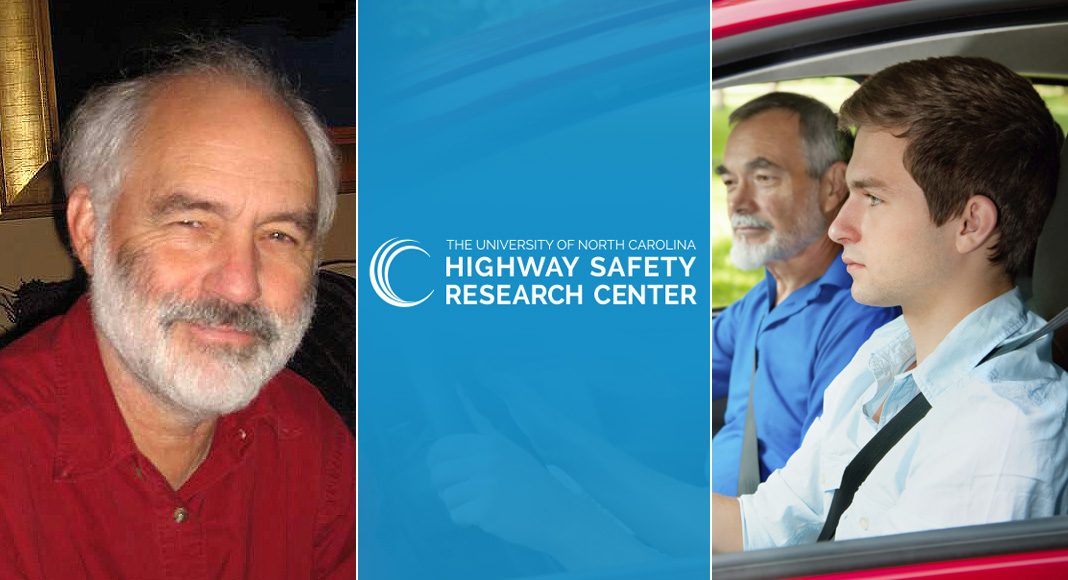Robert Foss is senior research scientist at the University of North Carolina Highway Safety Research Center. He has spent many years studying teenage drivers, their behavior and the way they interact. Here, he offers advice to parents on how they can best support their teenage drivers and what parents really need to do during the parent supervision phase.
Why are teen drivers so different to adult drivers?
In brief, teens are so different largely because they have less driving experience. There is some difference that results from the fact that teenagers are working their way through numerous developmental processes and all these can affect their driving behavior. But mostly, the differences have to do with the fact that the youngest teen drivers, by definition, are the least experienced drivers.
It’s quite misleading to think of ‘teen drivers’ as a meaningful grouping. There are numerous, dramatic changes in the lives of teens as they move from 16 to 19. For our purposes here, the main difference is simply driving experience, but there are the many issues involved in neurocognitive and psychosocial development. It is now widely known that human brains aren’t fully formed until the mid-20s, and the last part to fully develop is where ‘executive control’ functions seem to reside. In brief, oversimplified terms, that means teens tend to be more impulsive. It’s important to keep in mind though that there are no thresholds.
With all the processes that are changing it’s a continuum. Some are quicker, some take a long time (like physical development of the brain). The quickest is probably experience with driving. A year of driving produces dramatic improvements in almost everything related to crashing. I would say the literature on this issue suggests, as a general rule of thumb, that a year of driving experience is worth about four years of other, age-related developments.
What is the biggest challenge when it comes to encouraging teens to put safety first?
This reflects the widespread misconception that other drivers ‘put safety first’. Another common notion, representing the same idea, is that teens ‘think they’re invincible’. That actually misrepresents what’s going on. Although teens may act (or drive) like they think they’re invincible, or don’t care about safety, that’s not what’s going on. Several studies indicate that teens think they are more vulnerable to harm, more likely to die early, than adults do. So the issue is that we see impulsive acts by adolescents and assume they don’t care about safety. This is an error on our part in assuming that humans (or at least adults) mostly act in a rational, carefully calculated fashion.
Numerous current theories of behavior recognize that rational, deliberative action is involved in only a small fraction of behavior. Mostly, we just act—almost instantaneously, with no chance to ‘think first’. Driving in particular is almost entirely ‘acting without thinking’. Fortunately, it’s a task most of us can do pretty well that way, after we’ve accumulated a reasonable amount and variety of experience.
To directly answer your question, we can’t persuade teens to put safety first. All we can do is give them the opportunity to learn to drive, through lots of varied experience, and make it as safe as possible while they’re learning. This is the notion behind the concept of Graduated Driver Licensing (GDL), which the U.S. has embraced for 20 years, and which has paid substantial dividends. Other countries have been slower to embrace GDL, perhaps because of the mistaken belief that their older minimum driving age has addressed the ‘teen’ driver problem.
Many parents take responsibility for supervising their novice teen drivers. How can parents use this time wisely?
This is my favorite question, because there’s a simple, useful answer. Parents need to give their novice teen driver every opportunity to drive as much as possible, in as wide a variety of conditions as possible. Again, this is embodied in the structure of GDL systems. People learn to drive from driving. No amount of instructing or warning about risks will help a person know how to drive. We can’t teach people to play soccer/football by teaching them rules and telling they what they should and shouldn’t do. They have to get on the field, a lot, to begin to be able to do it. The same holds for driving. So parents need to ride with their teens as much as possible, for at least a full year!
Basic vehicle control can be mastered pretty quickly, but driving involves much more than handling the car. It involves understanding (from experience) what the road system is like, in all its variety and complexity. It also involves realizing that other drivers don’t always do what they should, what one expects them to and being able to spot indications of when they are about to deviate from what one expects. None of this is difficult to understand, but the only way to develop that understanding is through experience. Repeated experience.
Driving a time or two in a congested setting is not nearly enough. Driving for a few hours on rural roads is not nearly enough. Driving at night, in heavy rain, on ice- or snow-slickened roads a few times is only a start in developing an understanding of how to do it. In sum, you really want a beginning driver to experience nearly every kind of driving condition and situation for the first time with an attentive parent in the vehicle. That way, the parent’s experience can help minimize the danger for drivers who don’t yet know how to anticipate problems, or adapt their driving to avoid them.
How much do teen drivers learn from observing the behavior of their parents?
We don’t know. Because humans learn much about how to live through observation, it seems axiomatic that they learn about driving from observing what the drivers they ride with (usually, but not necessarily, parents) do. We don’t so much learn ‘how’ to do things by observing, but we very much learn ‘what is appropriate to do’ by observing. So teens won’t learn how to be skilled in reading a roadway environment by observing, but they may learn that ignoring speed limits, or traffic controls is ‘the way we drive’ from observing what parents do.
There have been a few attempts to examine whether and how teens’ driving matches that of parents but these are enormously difficult studies to do and the literature has come to inconsistent conclusions. The bottom line recommendation, of course, is for parents to assume that their teens will drive the way they’ve observed their parents driving. And it is an unquestionable fact that parents cannot get away with telling their teens to ‘do as I say, not as I do’. The belief that might work simply fails to understand how humans function.Â
In your opinion, do teens REALLY listen to their parents when it comes to learning to drive?
Our research, and that of others, suggests that most teens listen to their parents about learning to drive. However, parents generally don’t spend much time talking about the right things, in the right way, to their teens.
Parents seem generally to offer a few rules, give rather specific concrete guidance (‘Slow down, turn at the next corner, watch out for the car up ahead’). Although this may be needed by a complete beginner, what every beginner lacks—and every parent who has been driving for very long possesses—is driving ‘wisdom’ or ‘savvy’. This is the vast array of understanding that develops from experience and which reduces the chances of crashing among experienced drivers.
The problem is that experienced drivers use this knowledge non-consciously. They know things, they act on them, but they don’t do so consciously, so it’s hard for them to know what they do, and even more difficult for them to explain it to their teens. And even if they do, the novice needs to be able to do it without consciously thinking about it—because there is almost never enough time to do so when driving.
Again, this is where practice—gaining extensive and wide-ranging experience—is crucial. So the main thing teens need to listen to their parents about is when the parent says ‘Let’s go do some practice driving!’ Of course, parents can and should offer tidbits of wisdom while the teen is driving. But they need to avoid overdoing it. Novices are nervous and having a parent talking too much simply adds to that. And the advice parents can give based on their wisdom needs to be provided calmly, supportively.
Finally, what is the single most important thing parents can do to help get their teen drivers off to a safe start?
Practice, practice, practice. And more practice. All while the parent rides along to ensure the mistakes novices will inevitably make do not become catastrophic. The parent’s orientation should be that of a patient, calm, helpful, supportive mentor who is trying to slowly share the wisdom gained in years of experience driving, not a driving instructor trying to develop a range of specific skills. Do not lecture them about safety. Do not try to scare them into being safe. Do not assume they know what you do about driving; they don’t and it’s your job to help them learn.



















